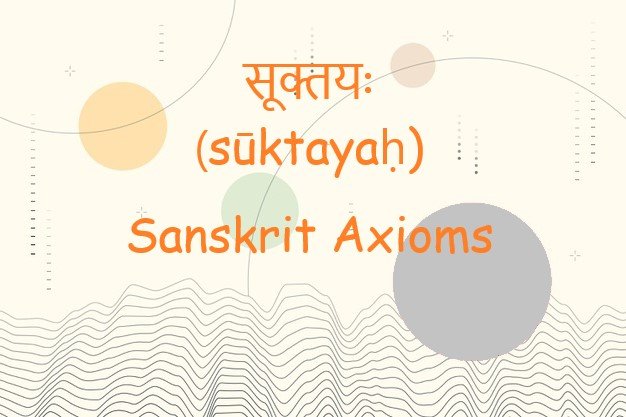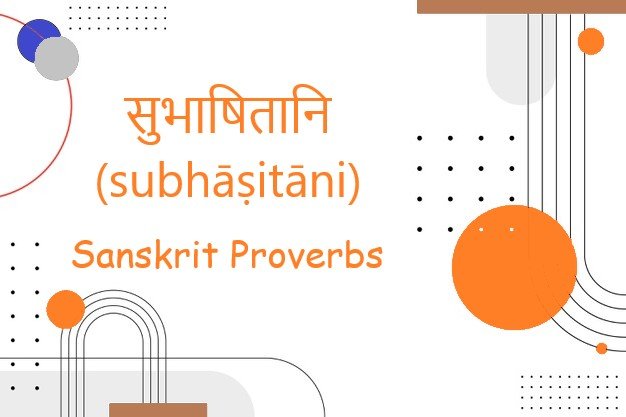Essay on Summer Season in Sanskrit
This is an essay on "Summer Season" in Sanskrit.
ग्रीष्म-ऋतुः इति विषये संस्कृते निबन्धः।
ग्रीष्म ऋतु पर निबंध।
English and Hindi translation is also given for better understanding.
This essay can be referenced by school students and Sanskrit learners.

Table of Contents
Video of Essay on Summer Season in Sanskrit
ग्रीष्म-ऋतुः इति विषये संस्कृते निबन्धः।
‘ग्रीष्म’ इति ऋतुः ऋतुषु द्वितीयः। ज्येष्ठाषाढयोः मासयोः अयं ऋतुः भवति। अयं ऋतुः वसन्तात् अनन्तरम् आगच्छति।
अस्य ऋतोः विशेषता उष्णं वातावरणम् अस्ति। अस्मिन् ऋतौ वृक्षाः शुष्काः जाताः। जलाशयाः क्षीणाः भवन्ति।
अस्मिन् ऋतौ जनाः पर्यटनाय विविधस्थानानि गच्छन्ति। केचित् जनाः समुद्रतटं गच्छन्ति। तत्र ते जनाः जलक्रिडाः जलतरणं च कुर्वन्ति। अन्ये शीतलप्रदेशान् गच्छन्ति।
अस्मिन् काले गृहात् बहिः गन्तुं न शक्यते। हस्ते छत्रं गृहीत्वा जनाः बहिः कार्यार्थं गच्छन्ति। ग्रीष्म-ऋतौ व्यजनानां, शीतकपाटिकानाम्, आदिवस्तूनां च विशेषं महत्त्वम् अस्ति। अस्मिन् ऋतौ जनाः जम्बुफलानि आम्रफलानि च खादन्ति। जनाः शीतपेयानि अपि पिबन्ति। ग्रीष्म-ऋतौ सायङ्कालः अतीव रमणीयः। तदा सूर्यास्तः तापं हरति।
ग्रीष्म-ऋतौ विद्यालयेषु अवकाशाः भवन्ति। एतदर्थम्, अयं ऋतुः सर्वेषां छात्राणाम् अतीव प्रियः। अतः, ग्रीष्म-ऋतुः मह्यमपि रोचते।
grīṣma-ṛtuḥ iti viṣaye saṃskṛte nibandhaḥ।
‘grīṣma’ iti ṛtuḥ ṛtuṣu dvitīyaḥ। jyeṣṭhāṣāḍhayoḥ māsayoḥ ayaṃ ṛtuḥ bhavati। ayaṃ ṛtuḥ vasantāt anantaram āgacchati।
asya ṛtoḥ viśeṣatā uṣṇaṃ vātāvaraṇam asti। asmin ṛtau vṛkṣāḥ śuṣkāḥ jātāḥ। jalāśayāḥ kṣīṇāḥ bhavanti।
asmin ṛtau janāḥ paryaṭanāya vividhasthānāni gacchanti। kecit janāḥ samudrataṭaṃ gacchanti। tatra te janāḥ jalakriḍāḥ jalataraṇaṃ ca kurvanti। anye śītalapradeśān gacchanti।
asmin kāle gṛhāt bahiḥ gantuṃ na śakyate। haste chatraṃ gṛhītvā janāḥ bahiḥ kāryārthaṃ gacchanti। grīṣma-ṛtau vyajanānāṃ, śītakapāṭikānām, ādivastūnāṃ ca viśeṣaṃ mahattvam asti। asmin ṛtau janāḥ jambuphalāni āmraphalāni ca khādanti। janāḥ śītapeyāni api pibanti। grīṣma-ṛtau sāyaṅkālaḥ atīva ramaṇīyaḥ। tadā sūryāstaḥ tāpaṃ harati।
grīṣma-ṛtau vidyālayeṣu avakāśāḥ bhavanti। etadartham, ayaṃ ṛtuḥ sarveṣāṃ chātrāṇām atīva priyaḥ। ataḥ, grīṣma-ṛtuḥ mahyamapi rocate।
Essay on Summer Season
The summer season is the second of the six seasons. This season occurs in the Hindu months of Jyestha and Ashadha. This season comes after the spring season.
The specialty of this season is its especially hot weather. Trees dry up in this season. Water bodies also start drying up.
People go to various places in this season. Some people go to the beach. There, people play and swim in the water. Others go to cold places.
One cannot go out of the house in this season. People take an umbrella with them and go out for their work. In the summer season, fans, refrigerators, etc. are of great importance. In this season, people eat plums and mangoes. People have cold drinks in this season. The evenings of the summer season are also very beautiful. During this time, the temperature decreases substantially.
Schools have holidays during the summer seasons. That is why this season is the favourite of all students. I, too, like the summer season for that reason.
ग्रीष्म ऋतु पर निबंध।
ग्रीष्म यह ऋतु ऋतुओं में द्वितीय है। ज्येष्ठ और आषाढ महीनों में यह ऋतु आता है। यह ऋतु वसन्त के बाद आता है।
इस ऋतु की विशेषता गरम वातावरण है। इस ऋतु में पेड़ सूख जाते हैं। जलाशय क्षीण हो जाते हैं।
इस ऋतु में लोग पर्यटन के लिए विविध स्थल जाते हैं। कुछ लोग समुद्रतट जाते हैं। वहाँ वे समुद्र में खेलते और तैरते है। अन्य लोग ठंडे प्रदेश जाते हैं।
इस काल में गृह से बाहर जाना शक्य नहीं होता। हाथ में छाता लेकर लोग बाहर काम करने के लिए जाते हैं। ग्रीष्म ऋतु में पंखों, फ्रीज, आदि का विशेष महत्त्व है। इस ऋतु में लोग जम्बुफल और आम खाते हैं। लोग ठंडे पेय भी पीते हैं। ग्रीष्म ऋतु में शाम अतीव रमणीय होता है। तब सूर्यास्त गरमी कम करता है।
ग्रीष्म ऋतु में विद्यालयों की छुट्टियाँ होती हैं। इसलिए, यह ऋतु सभी छात्रों का अतीव प्रिय है। इसलिए, ग्रीष्म ऋतु मुझे भी पसंद है।

Savitribai Phule
Sanskrit Essay on Savitribai Phule, with translation …
Internet
Essay on Internet in Sanskrit, English, and …
Importance of Machines
Essay on Importance of Machines in Sanskrit, …
Importance of Art
Essay on Importance of Art in Sanskrit, …
Republic Day of India
Essay on Republic Day of India in …
Examination
Essay on Examination in Sanskrit, English, and …
Pandita Ramabai
Essay On Pandita Ramabai in Sanskrit, English, …
Cricket
Essay on Cricket in Sanskrit, English, and …
Teachers Day
Essay On Teachers Day in Sanskrit, English, …
Navaratri
Essay On Navaratri in Sanskrit, English, and …
The Experience of Covid
Essay on The Experience of Covid in …
Essay on Ganeshotsav
Essay on Ganeshotsav in Sanskrit, English, and …
My Family
Essay on My Family in Sanskrit, English, …
Importance of Indian Festivals
Essay on Importance of Indian Festivals in …
Importance of Discipline
Essay on Importance of Discipline in Sanskrit, …
Importance of Sports
Essay on Importance of Sports in Sanskrit, …
Television
Essay on Television in Sanskrit, English, and …
Nutritious Diet
Essay on Importance of Nutritious Diet in …
Crow
Essay on Crow in Sanskrit, English, and …
Computer
Essay on Computer in Sanskrit, English, and …
Books My Friend
Essay on Books My Friend in Sanskrit, …
Mahatma Gandhi
Essay on Mahatma Gandhi in Sanskrit, English, …
Lokmanya Tilak
Essay on Lokmanya Tilak in Sanskrit, English, …
Deer
Essay on Deer in Sanskrit, English, and …
Himalayas
Essay on the Himalayas in Sanskrit, English, …
Eagle
Essay on Eagle in Sanskrit, English, and …
Snake
Essay on Snake in Sanskrit, English, and …
Dog
Essay on My Favourite Animal - Dog …
Importance of Knowledge
Essay on Importance of Knowledge in Sanskrit, …
Makar Sankranti
Essay on Makar Sankranti in Sanskrit with …
Cuckoo
Essay on Cuckoo in Sanskrit, English, and …
Swan
Essay on Swan in Sanskrit, English, and …
Indian National Flag
Essay on the Indian National Flag in …
Importance of Cleanliness
Essay on Importance of Cleanliness in Sanskrit, …
Importance of Exercise
Essay on Importance of Exercise in Sanskrit, …
Christmas
Essay on Christmas in Sanskrit with translation …
Parrot
Essay on Parrot in Sanskrit, English, and …
Importance of Water
Essay on Importance of Water in Sanskrit, …
Shiva
Essay on Bhagavan Shiva in Sanskrit, English, …
Rainy Season
Essay on Rainy Season in Sanskrit, English, …
My Home
Essay on My Home in Sanskrit, English, …
Dussehra
Essay on Dussehra in Sanskrit, English, and …
River
Essay on River in Sanskrit, English, and …
My favourite Teacher
Essay on My Teacher in Sanskrit, English, …
Farmer
Essay on Farmer in Sanskrit, English, and …
My Village
Essay on My Village in Sanskrit with …
Horse
Essay on Horse in Sanskrit with transliteration, …
Indian Independence Day
Sanskrit Essay on Indian Independence Day with …
Raksha Bandhan
Essay on Raksha Bandhan in Sanskrit with …
International Yoga Day
Essay on International Yoga Day in Sanskrit …
World Environment Day
Essay on World Environment Day in Sanskrit …
River Ganga
Essay on River Ganga in Sanskrit with …
Shri Rama
Essay on Shri Rama in Sanskrit with …
Moon
Essay on Moon in Sanskrit with transliteration, …
Library
Essay on Library in Sanskrit with transliteration, …
Abdul Kalam
Essay on Dr. A P J Abdul …
Goddess Saraswati
Essay on Goddess Saraswati in Sanskrit, English, …
Lion
Essay on Lion in Sanskrit, English, and …
Diwali
Essay on Diwali in Sanskrit, English, and …
Sun
Essay on Sun in Sanskrit, English, and …
Sanskrit Language
Essay on the Sanskrit language in Sanskrit, …
Cow
Essay on Cow in Sanskrit with translation …
Beach
Essay on Beach in Sanskrit with translation …
Festival of Holi
Essay on Festival of Holi in Sanskrit, …
Shri Krishna
Essay on Shri Krishna in Sanskrit, English, …
My Country
Essay on my country in Sanskrit, English, …
Mango Tree
Essay on Mango Tree in Sanskrit, English, …
Peacock
Essay on Peacock in Sanskrit, English, and …
Elephant
Essay on Elephant in Sanskrit, English, and …
My Friend
Essay on My Friend in Sanskrit, English, …
Shri Ganesha
Essay on Shri Ganesha in Sanskrit, English, …
My Body
Essay on My Body in Sanskrit, English, …
Savitribai Phule
Internet
Importance of Machines
Importance of Art
Republic Day of India
Examination
Pandita Ramabai
Cricket
Teachers Day
Navaratri
The Experience of Covid
Essay on Ganeshotsav
My Family
Importance of Indian Festivals
Importance of Discipline
Importance of Sports
Television
Nutritious Diet
Crow
Computer
Books My Friend
Mahatma Gandhi
Lokmanya Tilak
Deer
Himalayas
Eagle
Snake
Dog
Importance of Knowledge
Makar Sankranti
Cuckoo
Swan
Indian National Flag
Importance of Cleanliness
Importance of Exercise
Christmas
Parrot
Importance of Water
Shiva
Rainy Season
My Home
Dussehra
River
My favourite Teacher
Farmer
My Village
Horse
Indian Independence Day
Raksha Bandhan
International Yoga Day
World Environment Day
River Ganga
Shri Rama
Moon
Library
Abdul Kalam
Goddess Saraswati
Lion
Diwali
Sun
Sanskrit Language
Cow
Beach
Festival of Holi
Shri Krishna
My Country
Mango Tree
Peacock
Elephant
My Friend
Shri Ganesha
My Body
Other Interesting Sections

Axioms
Learn about Sanskrit Axioms which is a statement or proposition which is regarded as being established, accepted, or self-evidently true.

Proverbs
Learn about Sanskrit Proverbs which are a short, well-known saying, stating a general truth or piece of advice.

Shlokas
Learn about Shloka or shlokas in Sanskrit which consists of four padas of 8 syllables each, or of two half-verses of 16 syllables each.